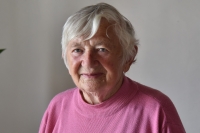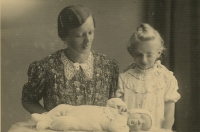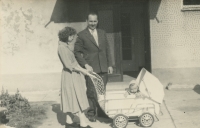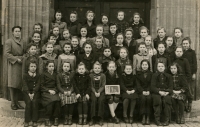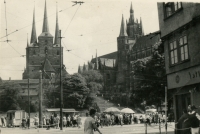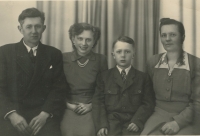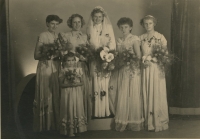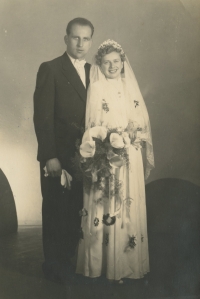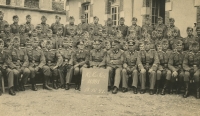If I would look back, I wouldn’t be here

Download image
Edita Nyplová was born on 24 December 1933 in the village of Nedaříž near Horka u Staré Paky. Her father, Antonín Lejdar, was of Czech descent, while her mother came from a German family. Before the war, her parents built a house in Nedaříž near the house of her paternal grandparents. They were all working as weavers in the local German factory owned by Mr Borůvka. It was in the factory where her father had been forced to accept German citizenship and join the Wehrmacht instead of Borůvka’s son. During the war, her mother gave birth to her second baby, Günter. After the war, her mother had been expelled from the country with both Günter and eleven-years-old Edita. They settled down in Erfurt for almost five years, later a part of the German Democratic Republic, before finding out that the witness’ father survived the fighting on the Eastern Front and returned to Czechoslovakia. As he wasn’t allowed to move to Germany, her mother decided to go back to Nedaříž. Theirs was a life of hardship among strange people, as after the war, almost all of their German neighbors had been expelled from the region. Edita had to do blue-collar jobs at local textile factories, despite the fact she graduated from an academy of arts in Erfurt, spoke three languages and knew stenography. She gave birth to two children and lived a hard life full of tragic and painful events. In 2021, she was living in Nedaříž.
